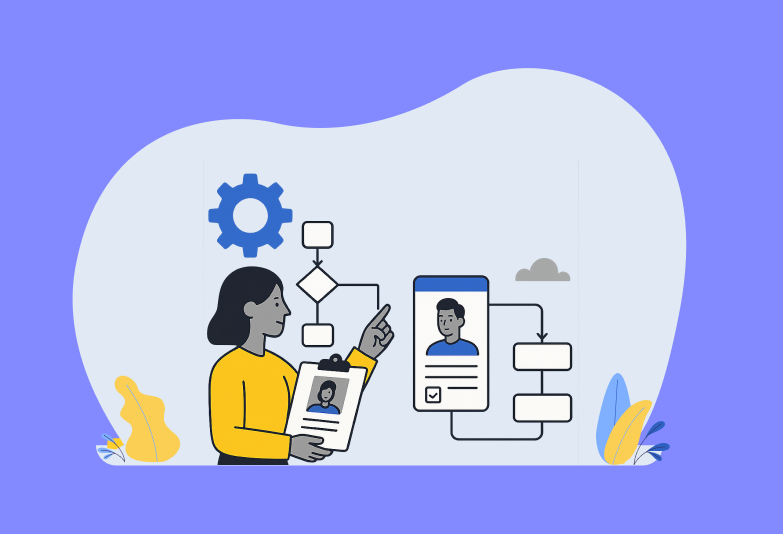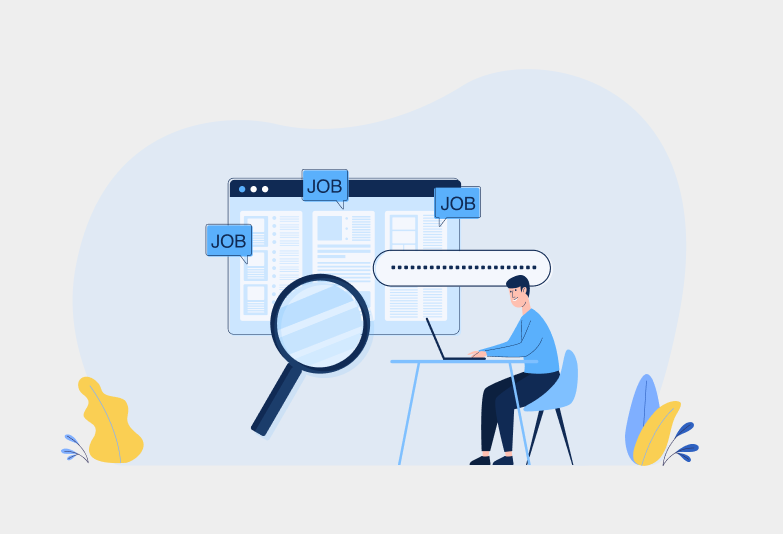Remote interviews have become the new norm, with 86% of organizations preferring them. It has become extremely crucial to adopt this new trend, especially in terms of staying ahead and finding the best talent.
A new study reveals that nine out of ten organizations prefer remote interviews over others because they are more efficient. However, some businesses still struggle to get the right talent due to the challenges of remote interviewing.
Let’s get familiar with some of the major challenges of remote interviewing.
What does it mean to interview remotely?
Since the pandemic, there has been a significant shift in hiring trends. Businesses have turned to remote interviews to get hold of some of the best talents from across the globe. A remote interview means interviewing the candidate on any video conferencing platform or a phone call to determine if they’re a good fit for the organization.
Why do companies interview remotely?
Interviewing remotely has come a long way, proving extremely beneficial for companies. Some of the major benefits of conducting an online interview include the following:
- Remote interviews save time, money, and effort for both the recruiter and the candidate.
- Interviewing remotely offers more flexibility than a traditional interview.
- Remote interviews provide a positive candidate experience (reported by 65% of candidates).
What are the 5 do’ and 5 don’ts during an interview?
Hiring the right candidate can be challenging, especially when maintaining an employer brand. So, to ensure that you maintain a strong reputation, we’ve compiled the best 5 do’s and don’ts for conducting an interview.
Dos:
Be on time
A healthy habit to adopt when you interview remotely is to always be on time. The best option would be to log in to the video conferencing platform 10 minutes before the scheduled time. Also, make sure to turn off any unrelated apps.
Research
Always research the available position, the candidate, and the job requirements. These basic details, like the candidate’s previous experience, certifications, etc., can help you stay ahead in terms of asking the right questions.
Have professional background
Even when you are appearing for a remote interview, it is advisable to maintain a professional background. If there is no such background around your house, try using an AI filter to change the look.
Check the internet connection and camera settings
Before you sit down for the interview, check your microphone, webcam, and internet connection. Practice a bit with what questions to ask before the interview to ensure everything is on time.
Send a reminder
It may be a good idea to send a reminder before the interview. This helps to avoid any last-minute changes that may potentially be having an impact on the interview schedule.
Don’ts:
Move the camera
When you appear for a remote interview, do not fiddle with the camera. This can make the video messy, thereby making your candidate feel dizzy. Even if you’re attending the interview from your mobile device, be stable.
Be too casual
Don’t just go with the flow and be too casual. Always remember that you’re in a professional setting, so you shouldn’t be too casual about what you say to the candidate and ask about him or her.
Switch off the camera
Never turn off your camera during the interview, as it may get awkward for the candidate to stare at the blank screen. Moreover, it also shows a lack of confidence, which may be bad for the interview.
Ask close-ended questions
Never ask close-ended questions to the candidate. These questions often feel forced, and the candidate may not even consider you to be confident. This can have a negative impact on the employer’s brand.
Interrupt
Never interrupt the candidate during the interview. Overlapping the communication or interrupting it can have a negative impact on them. It is best to listen to what the candidate has to say before moving on to the next question.
What are some remote interview tips for employers?
The potential candidate only has seven seconds to create a strong impression on the employer. Therefore, it is advisable that you make the most of it. Here are a few remote interview tips for employers to follow and provide a good candidate experience:
- You need to invest in a good-quality webcam and speakers to interview remotely.
- Maintain good body language so that you can come off as professional.
- If there are any disruptions around, move away from them.
- Download the latest version of the interviewing software.
- Use hiring software like Jobsoid to streamline the most repetitive tasks.
Closing Thoughts
Employers nowadays prefer remote interviews, considering how efficient and convenient they are. Adopting the right practices to offer a positive candidate experience and boost your employer’s brand is important. So, to find the right candidates and give them a positive experience, choose Jobsoid. The platform helps you connect with the best talents.
Choose your trial pack today and see how it works.

 Anjali Saini
Anjali Saini 

